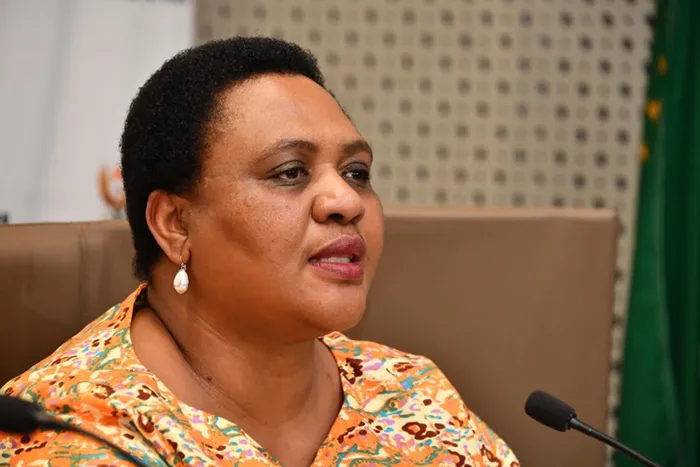South Africa has sufficient food supplies for coming months, says minster Didiza

Agriculture, Land Reform and Rural Development Minister Thoko Didiza.
CAPE TOWN - Agriculture, Land Reform and Rural Development Minister Thoko Didiza has appealed to South Africans not to panic, saying there is availability of food and farming inputs supplies for the coming months in the wake of Russia-Ukraine conflict.
An Agri SA’s research and analysis recently revealed that the Ukraine-Russia crisis will have a “serious impact” on South Africa’s food security and will pose a very real risks to parts of the agricultural sector.
“Ukraine and Russia are both major producers of wheat on the global market, accounting for a quarter of global wheat exports, and the disruption to the supply of this staple food will cause food price shocks globally, particularly in South Africa given that we import 30% of our total wheat from these nations,” said AgriSA.
Didiza said she has met with food processors, leaders in the fruit and grains industry, agricultural trading groups, and farmer associations to discuss availability of food suppliers and farming inputs.
The consultation is part of the Inter-Ministerial Task Team assessing risks to the South African economy during the Russia-Ukraine conflict.
She said they evaluated the availability of the food supplies and farming inputs supplies for the coming months.
“We have gained enough understanding of our available food supplies and are confident that there are sufficient supplies for South Africa and the neighbouring Southern African Custom Union (SACU) countries for the foreseeable future, and therefore no need to panic that the country could experience shortages.
We have benefited from good harvests of a range of crops and fruits and have already imported a large share of products that we are import-dependent on, such as wheat and rice.”
“The industry stakeholders have committed to sharing information about the food production conditions going forward, which will enable better planning and response should such be needed in future” said Didiza.
She added that the industry role-players also reflected on the need to drive long term inclusive growth in the sector.
“We will follow up on this call by addressing constraints to agriculture growth, including access to funding for new entrant farmers, crop and animal disease occurrences, and improving domestic fertilizer capacity.
The long-term and focused interventions are contained in the Agriculture and the Agro-processing Master Plan that the Department of Agriculture, Land Reform and Rural Development will launch soon with social partners,” she said.
AgriSA Executive Director, Christo van der Rheede said several of their farmers were planning to start planting more wheat.
“AgriSA concurs with the Minister's statement that there is no need to panic. South Africa is self-sufficient in terms of food production, yes, we import 30% of our wheat from Ukraine-Russia. Obviously some of our imports are affected and that's why some of our farmers have started to plant more wheat in South Africa.”
“We are also importing from other parts of the world. Our biggest concern is the impact of the ever increasing input prices. We are seeing a spike in prices of fertilizer, diesel, petrol and this will have an impact on the prices of food in general. It will further have an impact on the profit margins of many farmers.”
The biggest concern is not food availability, but food affordability, he said.
“We have engaged with the Minister around ways and means that government can consider to lower the costs of inputs in order to ease the burden on consumers,“ van der Rheede said.
Cape Times
Related Topics: